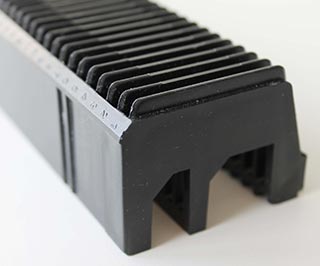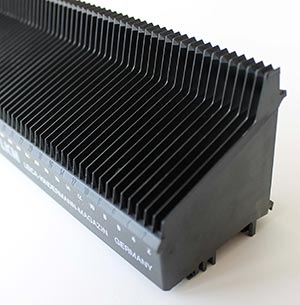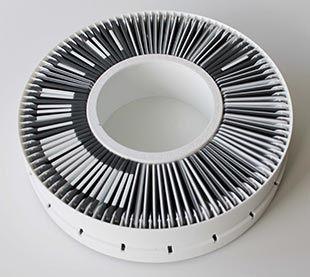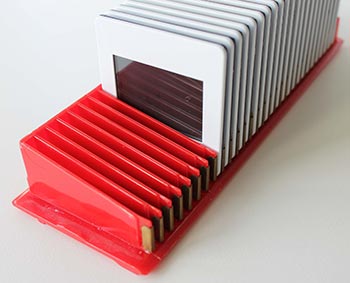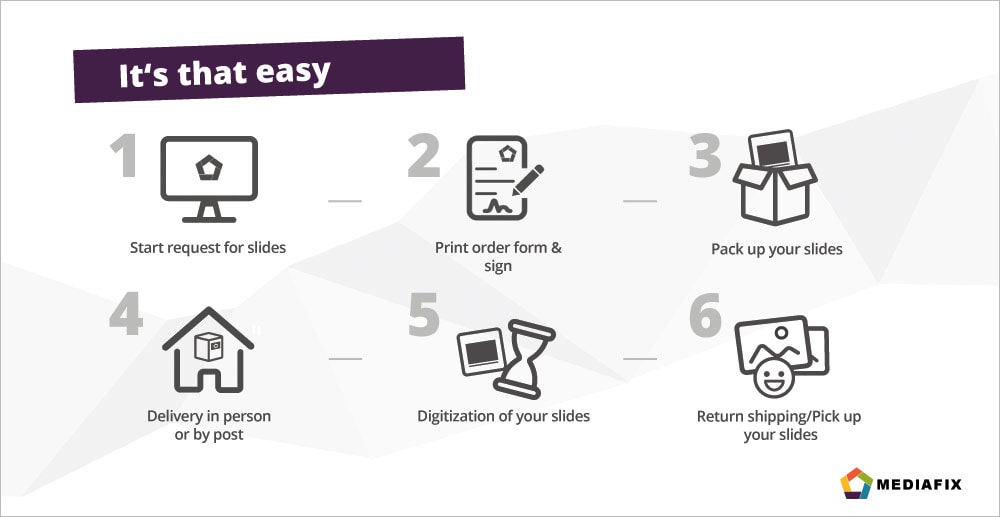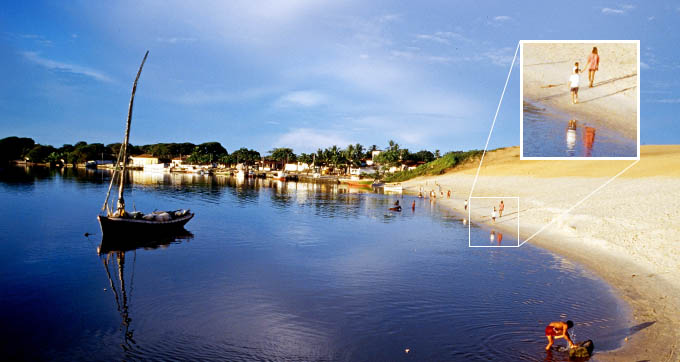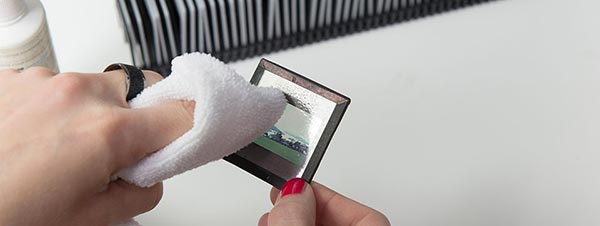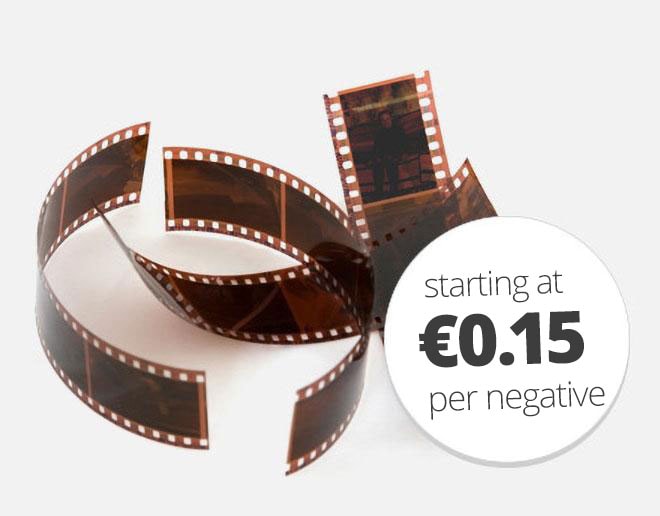| Format |
Properties |
Price per slide |
35mm
(24x36mm) |
· the most common slide format
· also called 35mm due to its width |
from €0.11 |
Medium-format
(4×4 to 6x9cm) |
· significantly higher resolution and sharpness than 35mm
· popular among demanding photographers |
from €0.84 |
Large-format
(9×12 to 30x40cm) |
· highest possible image quality
· professional standard especially in architectural photography |
from €2.49 |
| Minox and Pocket (8×11 resp. 13x17mm) |
· exotic formats
· mostly low image quality |
from €0.45 |
Instamatic
(28x28mm) |
· easier insertion of films into the camera
· very popular because of the square format |
from €0.45 |
Half-format
(18×24 to 24x24mm) |
· the same film as for 35mm format
· exposed in classic silent film format 18x24mm
· by AGFA extended to 24x24mm |
from €0.33 |
| Panorama format (24x60mm) |
· increased viewing angle
· significantly more image content
· especially popular in landscape photography |
from €0.84 |
35 mm (24x36mm)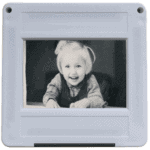
The 35 mm format is by far the most common slide format. Due to its width it is also called 35mm film. We digitize 35mm slides for you starting at €0.11 per piece.
Medium-format (4x4cm to 6x9cm)
Medium-format slides are sharper and have a higher resolution than 35 mm images. Because of its excellent image quality, it is still popular with professional photographers today.
Large-format (9x12cm to 30x40cm)
Slides taken in large-format are produced at great expense and in very small numbers. They are used in areas where the highest precision is required, for example in architectural photography.
Minox and pocket format (1.1×0.8cm resp. 1.7×1.3cm)
Minox and pocket formats are not widely used. The cameras that worked in these formats were not very technically advanced, so the slides are often not correctly exposed.
Half-format (1.8×2.4cm to 2.4×2.4cm)
In half-format, the classic 35mm film is exposed in the silent film format of 18x24mm rather than the usual 24x36mm. A shot in half-format is exactly half the size of a 35mm slide. AGFA further developed the half-format to 2.4×2.4cm.
Instamatic (2.8×2.8cm)
The Instamatic format simplified film loading considerably and was very popular because of its square dimensions, which were revolutionary at the time.
Panorama format (2.4×6 cm)
In the panorama format, the usual 35mm film is used. However, the larger viewing angle allows the reproduction of a much larger image content. The panorama format is particularly suitable for landscape photography.
See our price list for the prices of digitising different slide formats.
If you want to digitise your slides but don’t know what format they are, don’t worry! Our customer service are ready to help.
 Old analogue media won't last forever. Convert your slides to digital now and view your unique memories with family and friends on TV, your computer and tablet.
Old analogue media won't last forever. Convert your slides to digital now and view your unique memories with family and friends on TV, your computer and tablet.


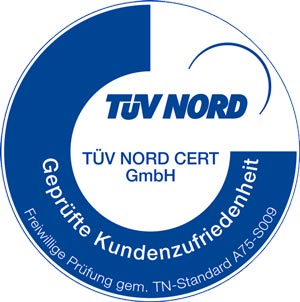
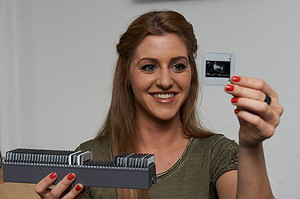 Two and a half minutes for each and every slide — that’s how long it takes to digitize slides by yourself. What’s more, you’ll need an expensive scanner if you want high quality. Save your time and money: MEDIAFIX is the market leader for digitizing slides, starting at €0.03 per slide with a best price guarantee.
Two and a half minutes for each and every slide — that’s how long it takes to digitize slides by yourself. What’s more, you’ll need an expensive scanner if you want high quality. Save your time and money: MEDIAFIX is the market leader for digitizing slides, starting at €0.03 per slide with a best price guarantee.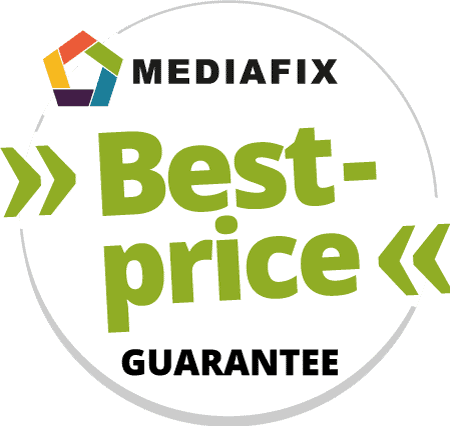 It pays to digitize slides with MEDIAFIX. From only €0.03 per slide, and with a best price guarantee, your precious memories will be preserved in outstanding quality.
It pays to digitize slides with MEDIAFIX. From only €0.03 per slide, and with a best price guarantee, your precious memories will be preserved in outstanding quality.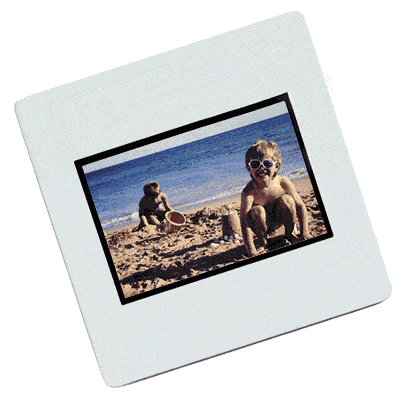


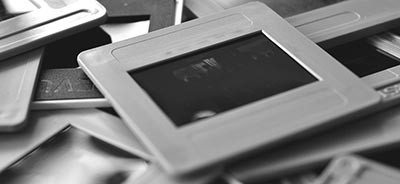 Plastic frames
Plastic frames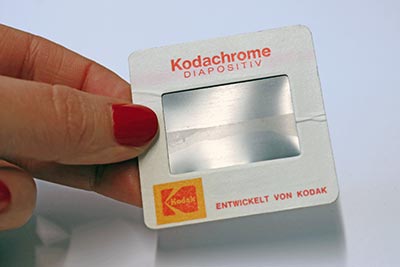 Kodachrome
Kodachrome